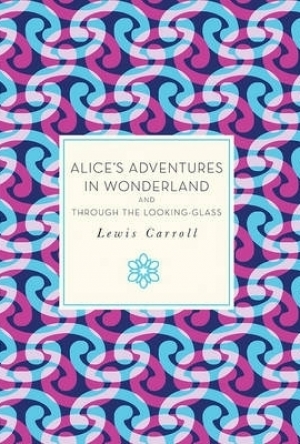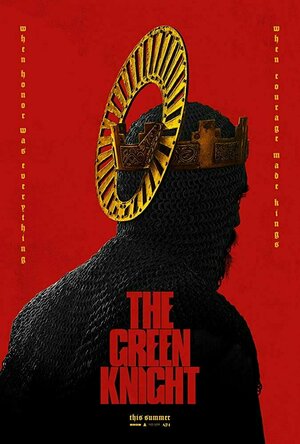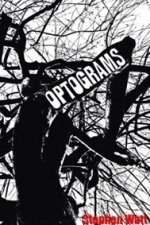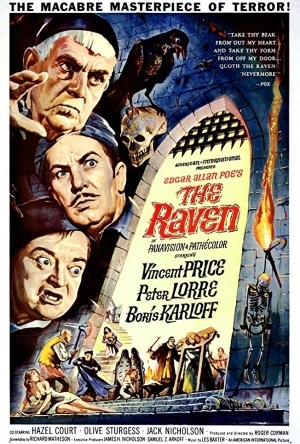Search
Search results
Roxanne (13 KP) rated Dragons, Flowers, Trees And Other Pretty Things in Books
Nov 14, 2018
___ <b>3 Star Rating</b> ___
<b>Ebook downloaded for FREE from Smashwords</b>
This is a really beautiful collection of poetry written straight from the heart of the author. The subject matter of each poem changes throughout the book, containing life, love, nature and beauty.
It is a short, refreshing read which I recommend.
The main reasons I removed some stars was because some of the writing and poems were not to my personal taste (no fault of the author) and it is very obvious that english is not the author's first language as there were quite a few spelling and editing errors which made some of the poems quite difficult to read and understand. Other than that this was a nice and pleasant read.
<b>Ebook downloaded for FREE from Smashwords</b>
This is a really beautiful collection of poetry written straight from the heart of the author. The subject matter of each poem changes throughout the book, containing life, love, nature and beauty.
It is a short, refreshing read which I recommend.
The main reasons I removed some stars was because some of the writing and poems were not to my personal taste (no fault of the author) and it is very obvious that english is not the author's first language as there were quite a few spelling and editing errors which made some of the poems quite difficult to read and understand. Other than that this was a nice and pleasant read.
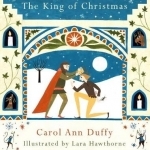
The King of Christmas
Carol Ann Duffy and Lara Hawthorne
Book
On a frosty winter evening, the Baron watches the snow fall. He is bored and worried. It will soon...
TC
Trophic Cascade
Book
In this fourth book in a series of award-winning survival narratives, Dungy writes positioned at a...
Dave Eggers recommended Lost In Translation (2003) in Movies (curated)
John Lennon recommended Alice's Adventures in Wonderland and Through the Looking Glass in Books (curated)
Erika (17789 KP) rated The Green Knight (2020) in Movies
Aug 2, 2021
Green Knight, based upon the poem, Sir Gawain and the Green Knight, does the poem justice. We join our relatively pure-hearted Sir Gawain (Dev Patel) on Christmas morning, as he wakes up in what appears to be a brothel. He rushes home to his Mother (Sarita Choudhury), to change for the Christmas Day feast with the aged King (Sean Harris). Mother is left behind as Gawain goes to the feast, and conjures the appearance of the Green Knight.
Gawain agrees to the Christmas game proposed by the Green Knight, so he can be knighted himself. The game is the same as the poem, a knight gives a blow to the Green Knight, and a year from that date, the knight will visit the Green Chapel so he can return the favor.
The year passes, and Gawain sets out on his quest. Mother gives him the gift of a green sash, that will protect him as he faces the journey and the Green Knight. He sets off on his trippy journey, encountering a scavenger (Barry Keoghan) along the way and is quickly delayed in his quest and left for dead, losing his green sash. After freeing himself, he sets out on his allegory-filled quest again, encountering St. Winifred (Erin Kellyman), giants, and is led by a fox to a castle near the Green Chapel.
The castle is where the film gets back on track with the poem. The Lord (Joel Egerton) shows kindness and hospitality, while his wife (Alicia Vikander), takes the role as temptress. Alicia Vikander plays both the Lady, and the prostitute that Gawain is in love with back home. It’s understandably confusing for Gawain. The same deal is struck between the Lord and Gawain, while the Lord is away on the hunt, he will give Gawain everything he catches, while Gawain promises to give the Lord anything he receives at the castle. Gawain does not end up keeping the agreement as he’s seduced by the Lady and gets the green sash back. He escapes the castle and goes to the Green Chapel to finish the Christmas game. The end was very interesting, would Gawain choose to be courageous and maintain his honor, accepting death? Or would he be a coward, running away to be knighted, then subsequently become King? The ending was scary good.
My first thought after the film ended was that we finally got a film that did an Arthurian legend justice. I happened to be really into Arthuriana, so this film was such a treat. Though, I am left with some questions. I’m not sure which sister Mother was supposed to be. Was Mother Morgaine or Morgause? I assume it was Morgause, but Mother was a little more witchy, so maybe Morgaine? I also don’t know if in the film, the Green Knight was the Lord. The characters were played by two different actors, but the Lord is definitely supposed to be the Green Knight.
Another thing I did like is that I don’t believe they ever called the King by his name, Arthur. This was a smart move, as the story was centralized on Sir Gawain, and not about Arthur and his Knights of the Round Table.
The one sore thumb for me was Alicia Vikander. Her accent when she was the prostitute, Essel, was horrid. I also think that character wasn’t really needed at all because she was just annoying. The whole brothel situation itself was kind of lame because Gawain was supposed to be pure and innocent. The innocence being lost at the Castle was a major part of the poem.
Dev Patel was excellent as Gawain; I was entranced by him, and he kept my attention the entire film. I know there were grumblings about his casting, but seriously, this is a fantasy story. It also is not impossible for people of a different race to be present all over Europe. There once was this empire called Rome, that encompassed a very large area, and enabled people to travel around and settle in areas.
I had been looking forward to this film since March of 2020, and it completely delivered. I hope we get more films like this, rather than the barrage of big dumb action and comic book films. I can’t wait to go see this film again!
Gawain agrees to the Christmas game proposed by the Green Knight, so he can be knighted himself. The game is the same as the poem, a knight gives a blow to the Green Knight, and a year from that date, the knight will visit the Green Chapel so he can return the favor.
The year passes, and Gawain sets out on his quest. Mother gives him the gift of a green sash, that will protect him as he faces the journey and the Green Knight. He sets off on his trippy journey, encountering a scavenger (Barry Keoghan) along the way and is quickly delayed in his quest and left for dead, losing his green sash. After freeing himself, he sets out on his allegory-filled quest again, encountering St. Winifred (Erin Kellyman), giants, and is led by a fox to a castle near the Green Chapel.
The castle is where the film gets back on track with the poem. The Lord (Joel Egerton) shows kindness and hospitality, while his wife (Alicia Vikander), takes the role as temptress. Alicia Vikander plays both the Lady, and the prostitute that Gawain is in love with back home. It’s understandably confusing for Gawain. The same deal is struck between the Lord and Gawain, while the Lord is away on the hunt, he will give Gawain everything he catches, while Gawain promises to give the Lord anything he receives at the castle. Gawain does not end up keeping the agreement as he’s seduced by the Lady and gets the green sash back. He escapes the castle and goes to the Green Chapel to finish the Christmas game. The end was very interesting, would Gawain choose to be courageous and maintain his honor, accepting death? Or would he be a coward, running away to be knighted, then subsequently become King? The ending was scary good.
My first thought after the film ended was that we finally got a film that did an Arthurian legend justice. I happened to be really into Arthuriana, so this film was such a treat. Though, I am left with some questions. I’m not sure which sister Mother was supposed to be. Was Mother Morgaine or Morgause? I assume it was Morgause, but Mother was a little more witchy, so maybe Morgaine? I also don’t know if in the film, the Green Knight was the Lord. The characters were played by two different actors, but the Lord is definitely supposed to be the Green Knight.
Another thing I did like is that I don’t believe they ever called the King by his name, Arthur. This was a smart move, as the story was centralized on Sir Gawain, and not about Arthur and his Knights of the Round Table.
The one sore thumb for me was Alicia Vikander. Her accent when she was the prostitute, Essel, was horrid. I also think that character wasn’t really needed at all because she was just annoying. The whole brothel situation itself was kind of lame because Gawain was supposed to be pure and innocent. The innocence being lost at the Castle was a major part of the poem.
Dev Patel was excellent as Gawain; I was entranced by him, and he kept my attention the entire film. I know there were grumblings about his casting, but seriously, this is a fantasy story. It also is not impossible for people of a different race to be present all over Europe. There once was this empire called Rome, that encompassed a very large area, and enabled people to travel around and settle in areas.
I had been looking forward to this film since March of 2020, and it completely delivered. I hope we get more films like this, rather than the barrage of big dumb action and comic book films. I can’t wait to go see this film again!
Eilidh G Clark (177 KP) rated Optograms in Books
May 13, 2017
Great Collection
Stephen Watt is a poet and spoken word artist from Dumbarton. I stumbled upon his work by accident, and was drawn by his likeness in style to a favourite poet of mine, Raymond Carver. Delighted by what I had read, I preceded to watch some of his spoken word performances on You Tube. I was not disappointed. Watt’s poetry and indeed his spoken word delivery, is smart, punchy, intelligent and contemporary. I was delighted to be offered the opportunity to review his new poetry pamphlet Optograms, published by Wild Word press in 2016. Optograms is a wonderful representation of Watt’s finest work, and is a fresh new approach to Scottish poetry. The poet tackles some controversial topics such as prostitution, homelessness, and gender as well as delving into the more intimate topics such as miscarriage and Alzheimer’s. The imagery is his work is striking and each word and line carefully crafted, but it is the way in which the poems radiate emotion that make this work unique. The readers need look no further than the opening poem to get an understanding of the poet’s compassion and understanding of contemporary society. ‘Lipstick’ explores gender representation and discrimination,
I go to my room, wiping
the admirer’s lipstick clean
with tights beneath jeans
retrieved from a friend’s house,
and with the words
Big Girl’s Blouse
reverberating inside my head
This poem speaks volumes in so little words and the reader is forced to look inwardly at their own behaviour toward people who do not conform to the norm. Similarly, ‘Prayers to Aliens and Satellites’ is a raw and candid view of homelessness which digs deep into the readers conscience,
where bloodless, xylophonic fingers
sink into armpits –
petitioned hands closed to benefits
and the friendships of passersby.
Like the previous poem, ‘Prayers to Aliens and Satellites’ urges the reader to become more aware of the social problems in society. If these poems are not enough to capture the heart of the reader, Watt surprises us with his heart crushing honesty in poems such as ‘Clinics Lip’ – a grief stricken account of miscarriage,
A husband, once the acme of affection,
now lollygagging in the garden;
crossmaker in waiting
for the small plot earmarked for the hill’s crest.
My own personal favourite is ‘Trouble was Someone Else’s Kid’, a short account of childhood memories, like a fragment of memoir condensed into neatly arranged stanza’s. There is something funny yet tragic about this poem that brought to me both nostalgia and a desire to relive my own fading youth.
We moved in shadows, kept the lid
on, as if peanut butter sandwiches
had pasted our lips together.
Other neighbourhoods sizzled
with pyromaniacs and politics,
alcoholics who played tin whistles
when Di and Charles got hitched.
These are only a few of the delights that can be found in this little treasure of a pamphlet and I would urge poetry lovers as well as those who are new to poetry to seek out a copy of this work. With twenty-six wonderful poems Optograms, is undoubtedly one of the best collections of contemporary Scottish poetry that I have read.
To learn more about the Stephen Watt you can visit The Scottish Poetry Library, http://www.scottishpoetrylibrary.org.uk/poetry/poets/stephen-watt or like his Facebook page @StephenWattSpit. Optograms, can be purchased from stephenwattspit299@gmail.com or the publisher Marc Sherland marcsherland@me.com at Wild Word Press.
I go to my room, wiping
the admirer’s lipstick clean
with tights beneath jeans
retrieved from a friend’s house,
and with the words
Big Girl’s Blouse
reverberating inside my head
This poem speaks volumes in so little words and the reader is forced to look inwardly at their own behaviour toward people who do not conform to the norm. Similarly, ‘Prayers to Aliens and Satellites’ is a raw and candid view of homelessness which digs deep into the readers conscience,
where bloodless, xylophonic fingers
sink into armpits –
petitioned hands closed to benefits
and the friendships of passersby.
Like the previous poem, ‘Prayers to Aliens and Satellites’ urges the reader to become more aware of the social problems in society. If these poems are not enough to capture the heart of the reader, Watt surprises us with his heart crushing honesty in poems such as ‘Clinics Lip’ – a grief stricken account of miscarriage,
A husband, once the acme of affection,
now lollygagging in the garden;
crossmaker in waiting
for the small plot earmarked for the hill’s crest.
My own personal favourite is ‘Trouble was Someone Else’s Kid’, a short account of childhood memories, like a fragment of memoir condensed into neatly arranged stanza’s. There is something funny yet tragic about this poem that brought to me both nostalgia and a desire to relive my own fading youth.
We moved in shadows, kept the lid
on, as if peanut butter sandwiches
had pasted our lips together.
Other neighbourhoods sizzled
with pyromaniacs and politics,
alcoholics who played tin whistles
when Di and Charles got hitched.
These are only a few of the delights that can be found in this little treasure of a pamphlet and I would urge poetry lovers as well as those who are new to poetry to seek out a copy of this work. With twenty-six wonderful poems Optograms, is undoubtedly one of the best collections of contemporary Scottish poetry that I have read.
To learn more about the Stephen Watt you can visit The Scottish Poetry Library, http://www.scottishpoetrylibrary.org.uk/poetry/poets/stephen-watt or like his Facebook page @StephenWattSpit. Optograms, can be purchased from stephenwattspit299@gmail.com or the publisher Marc Sherland marcsherland@me.com at Wild Word Press.
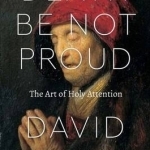
Death be Not Proud: The Art of Holy Attention
Book
The seventeenth-century French philosopher Nicolas Malebranche thought that philosophy could learn a...
Awix (3310 KP) rated The Raven (1963) in Movies
Feb 9, 2018 (Updated Feb 9, 2018)
Vincent Price Broods Over His Dead Wife's Portrait (Yet Again)
Roger Corman's cycle of Poe-inspired movies goes into full-on comedy mode with this tale of squabbling magicians (played by Vincent Price, Peter Lorre and Boris Karloff). It is, obviously, only very loosely inspired by Poe's poem, but then you can only stretch 108 lines of verse so far.
The fun is in the performances, with the veteran cast members competing to ham it up more extravagantly. Also knocking about the lower reaches of the cast list is Jack Nicholson, really showing not much sign of the talent that would earn him so many Oscar nominations in later years.
Knockabout stuff, but well played and often very funny. Not actually much of a horror movie, though, certainly by modern standards.
The fun is in the performances, with the veteran cast members competing to ham it up more extravagantly. Also knocking about the lower reaches of the cast list is Jack Nicholson, really showing not much sign of the talent that would earn him so many Oscar nominations in later years.
Knockabout stuff, but well played and often very funny. Not actually much of a horror movie, though, certainly by modern standards.
Dana (24 KP) rated Inferno (The Divine Comedy, #1) in Books
Mar 23, 2018
I have been wanting to read the Divine Comedy for a while now, especially since it is constantly referenced in other works. I thought it was cool how Dante brought in so many well-known political, religious, and just generally famous people then showed them all suffering in Hell. Yes, there was a lot of humor strewn throughout this epic poem, but there were obviously a lot of serious moments that made you have to think. Even if you are not religious, this is a very interesting thing to pick up because of its historical connections as well as being an insight into the minds of some more religious figureheads during this time period. Overall, this was a pretty cool read and I am excited to read the other two.


